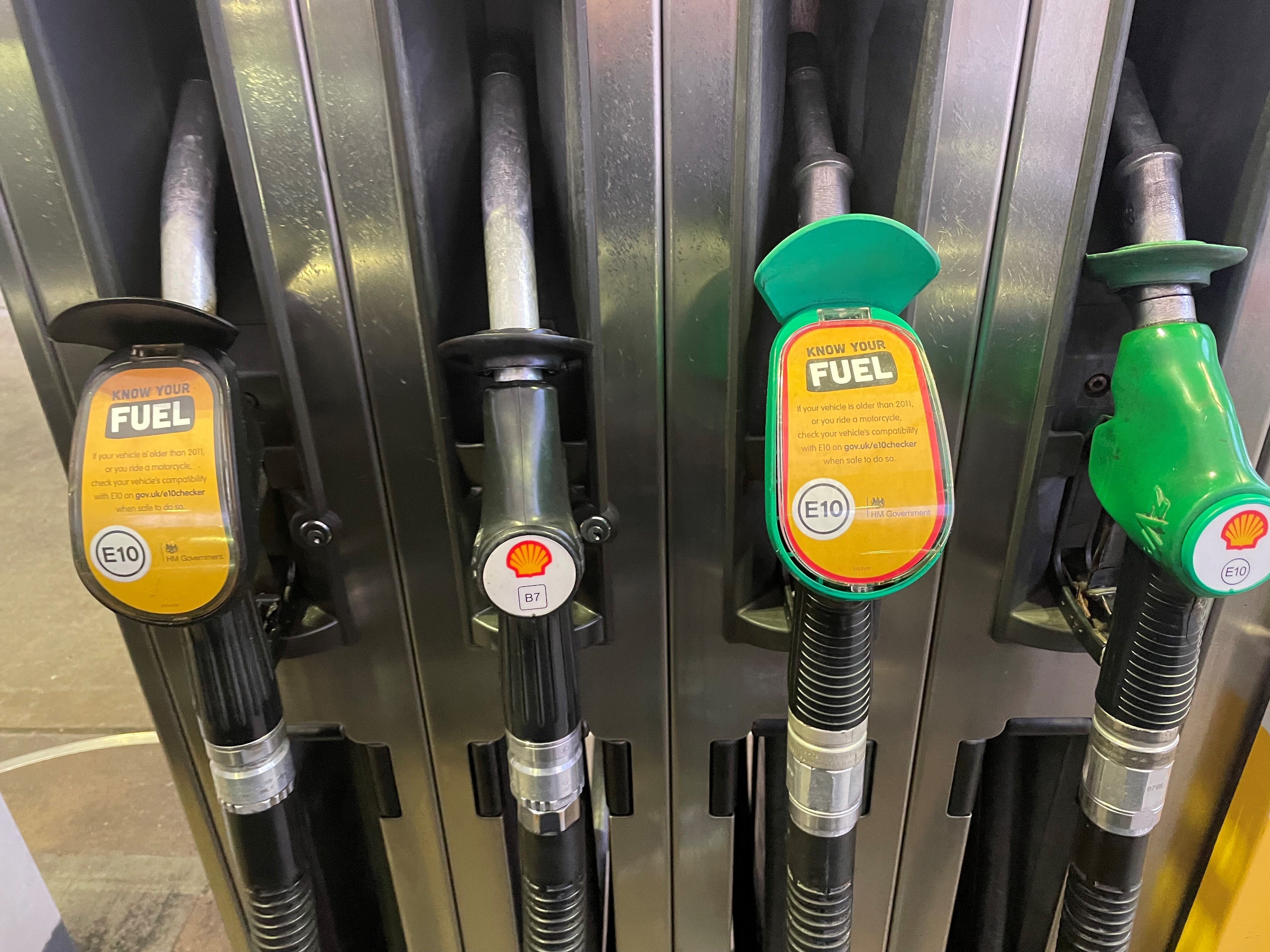How to cut the cost of motoring as fuel prices soar
As fuel prices hit record highs, experts offer ways to try to keep the brakes on the cost of driving. By Rob Griffin

Petrol prices could soar even higher over the next few weeks because of concerns over the fallout from Russia’s invasion of Ukraine. The average prices of unleaded and diesel have been rocketing – and drivers should prepare for further hikes.
“The average price of petrol appears to be on a collision course with £1.65 a litre, having reached a new record of 163.46p on Sunday,” Simon Williams, the RAC’s fuel spokesperson, said. “Diesel also hit another record high of 173.67p.”
But what can motorists do to help ease the financial burden? Here we take a look at the best ways to reduce the costs of being on the road.
Shop around
The first piece of advice is to find the cheapest petrol prices in your area. While costs are rising everywhere, not all garages will be charging the same amount for unleaded and diesel.
We used Confused.com’s fuel price calculator to investigate how much forecourt prices differed even within a modest 10-mile radius.
Using the town centre of Eastbourne, East Sussex, we found the cheapest garage was selling unleaded for 146.9p per litre, while the most expensive was charging 157.9p.
A difference of 11p might not sound like much, but it equates to more than £6 extra every time you fill the average 57l tank in a medium-sized car.
Car sharing
Another option is splitting your costs by car sharing. The simplest method is an informal arrangement between friends or work colleagues heading in the same direction.
Usually, car sharers either take it in turns to drive, or one of them contributes towards the petrol costs of the other. Obviously, the more people you can fit in the car, the cheaper it is for everyone.
An alternative is using one of the increasing numbers of organised car clubs. You can rent vehicles out on a flexible basis, often daily or per hour. This is ideal if you only need to use a car sporadically, as it means you won’t have to meet annual running costs such as taxation, MOTs and servicing.
There are also websites such as GoCarShare.com that enable you to fill empty car seats on a journey – as well as asking if anyone has space for you.
If you do need your own car, though, and it isn’t practical to share or use one of these schemes, then what else can you do to keep your costs in check?
Check your tyre pressure
Underinflated tyres make your car’s engine work harder. This means you’ll be using more fuel. The optimum pressure will vary between tyres. However, you can usually find these listed on the inside of the driver’s door. Ask your local garage if you’re unsure.
Plan ahead
Sitting for hours in traffic is a sure-fire way to use up more fuel. Therefore, plan journeys, especially longer, motorway trips, in advance. Consider driving at times when the roads are likely to be quieter, or even check to see if alternative routes may be quicker – even if they’re technically longer.
Keep it aerodynamic
Avoid fixing roof racks and boxes to your car, as these will increase drag and lead to higher fuel consumption. It’s a similar situation if you have a bike strapped to your roof. Anything that interferes with a car’s natural aerodynamics could cost you more in fuel.
Drive steadily
Watch how you drive. Ideally, keep a constant, steady speed to minimise the amount of fuel you use on a journey. Accelerating and braking sharply will result in more petrol station visits. Also, if you’re going to be stationary for more than a minute, consider turning off your engine.
Go electric
A more extreme response to rising petrol prices is to buy an electric car. It won’t be long before we’re all driving electric vehicles, and the change is already under way.
According to the Society of Motor Manufacturers and Traders, registrations of BEVs (battery electric vehicles) and PHEVs (plug-in hybrid electric vehicles) will grow by 61 per cent and 42 per cent respectively in 2022.
The number of searches for electric vehicles has also risen 150 per cent year on year due to the recent fuel-price increases, according to carwow, the online car buying site.
Hugo Griffiths, carwow’s features editor, said motorists were looking to mitigate the impact that rising petrol prices will have on their household budget. “Two in three motorists tell us costs are a key consideration for them as they decide whether to go electric,” he added.
Steve Tigar, chief executive of loveelectric.cars, said: “There’s never been a better time to drive an electric vehicle. Soaring pump prices make running one more attractive than ever.”
As well as the decrease in fuel bills, Tigar highlighted the exemption from road tax and congestion charges along with low emission fees as other benefits of making the switch.
“Electric vehicles are cheaper to maintain,” he said. “They have fewer moving parts; there’s no oil to change, and because of their clever regenerative braking that charges the battery using kinetic energy, there’s lower wear and tear on brake pads and discs.”






Join our commenting forum
Join thought-provoking conversations, follow other Independent readers and see their replies
Comments